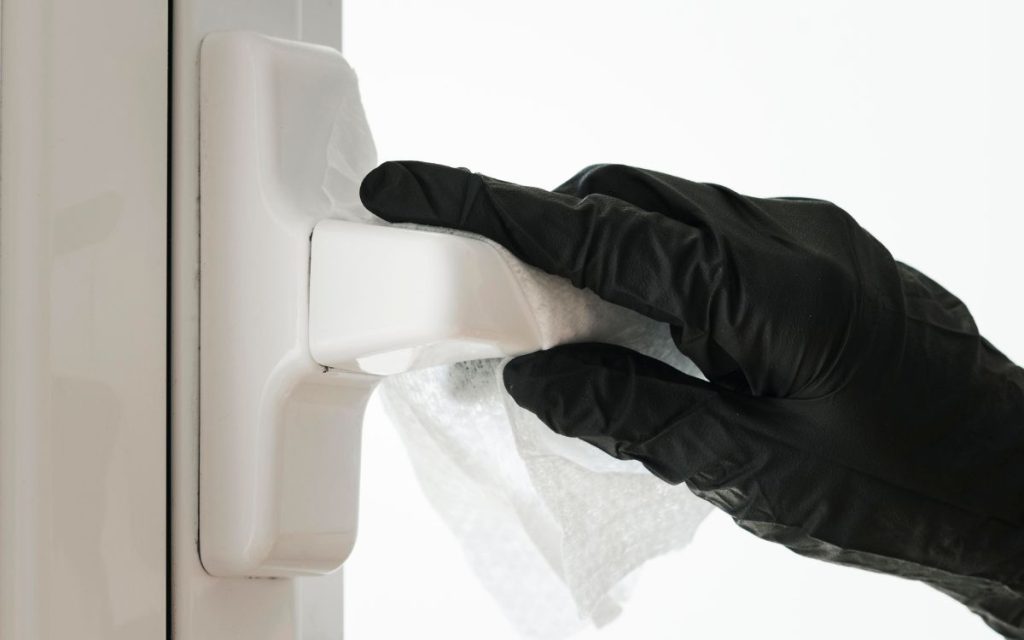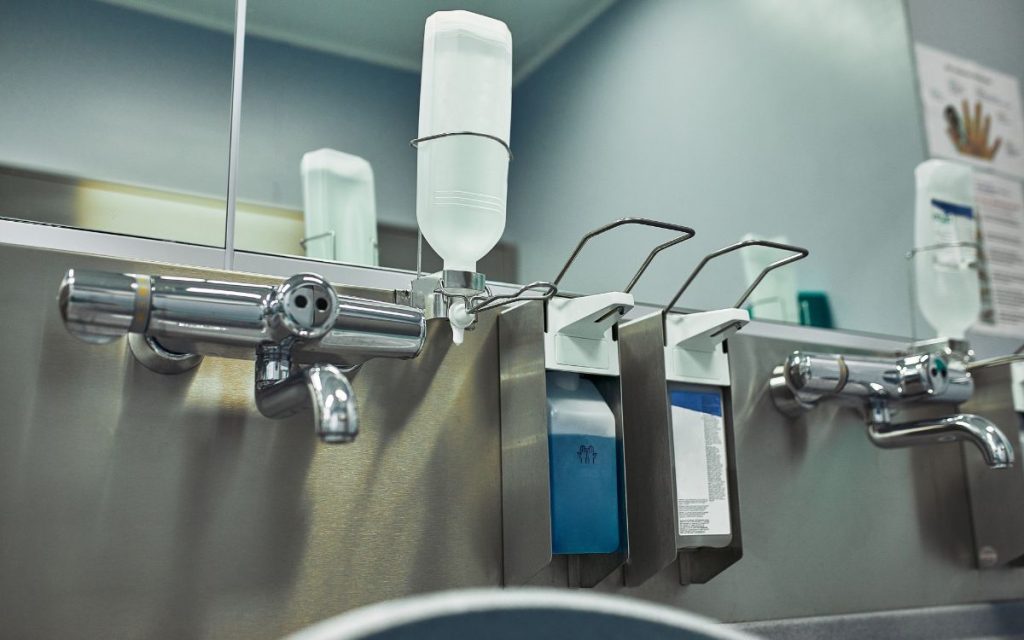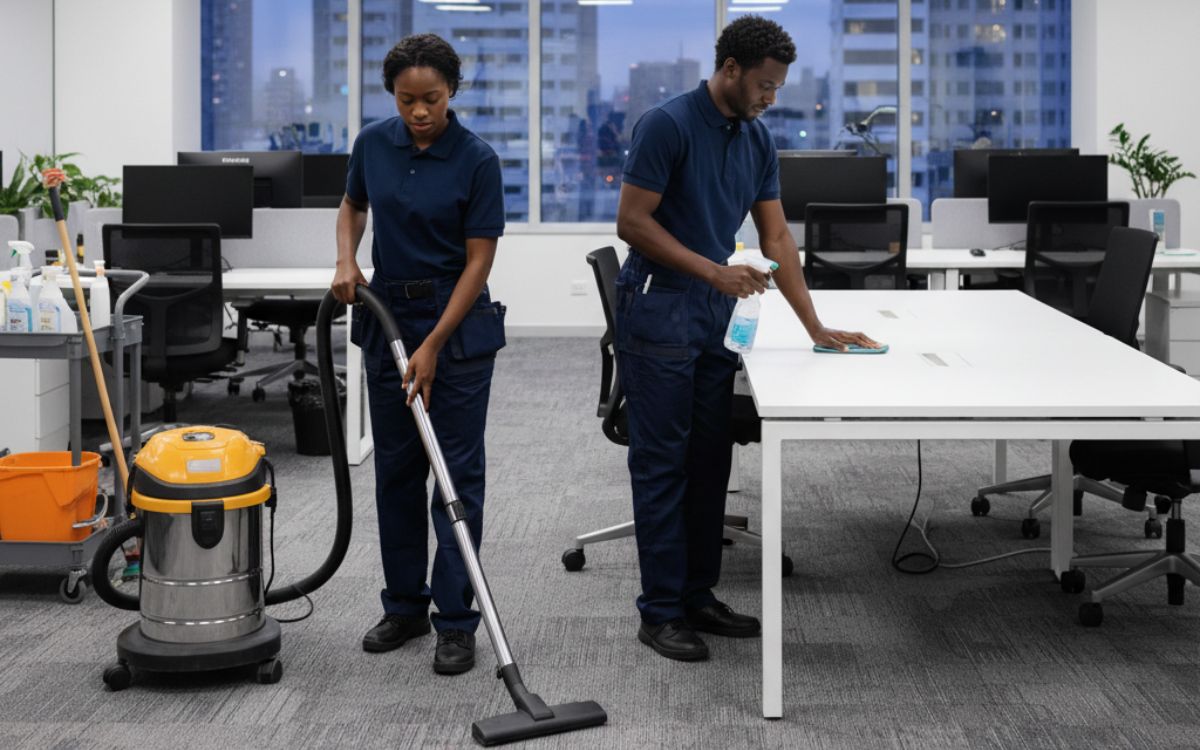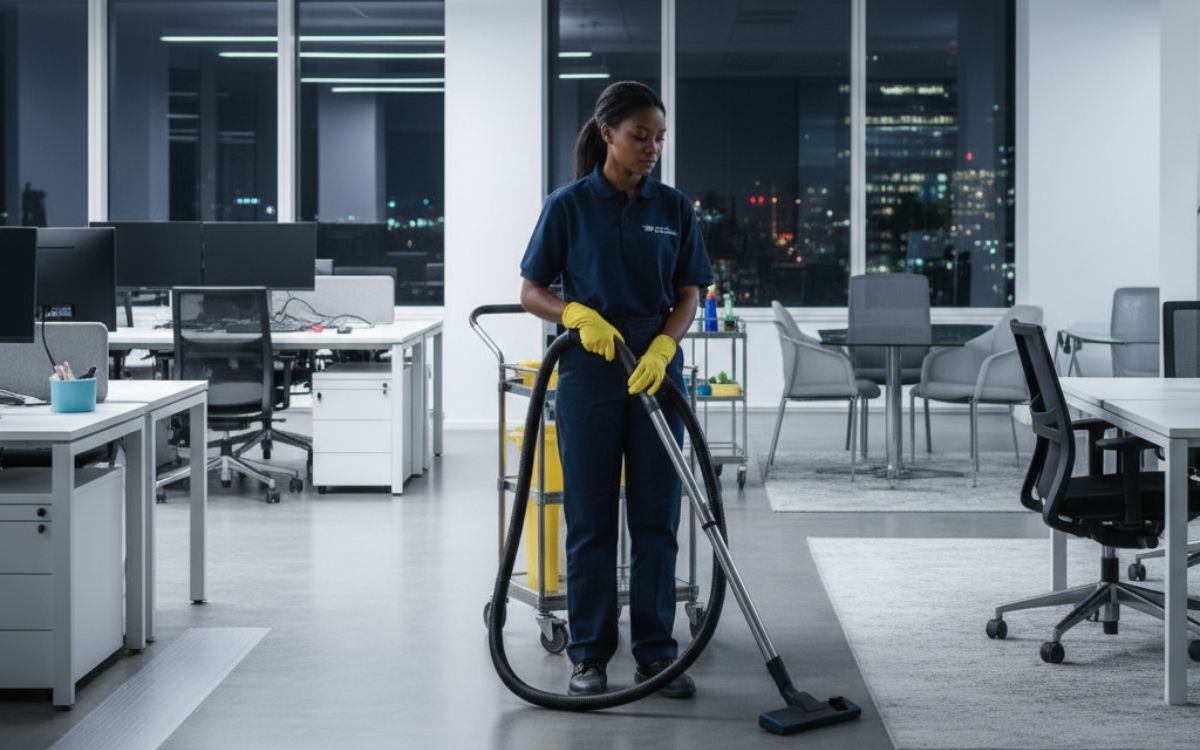For many businesses, a clean workplace is seen as a simple matter of tidiness. However, the importance of maintaining excellent hygiene facilities goes far beyond a tidy appearance. It is a fundamental aspect of a company’s daily operations.
This is an area of facility management that shows a commitment to staff wellness and brand reputation. Below we will dive into what exactly hygiene facilities are, and why their cleanliness is vital for protecting employee health, enhancing productivity, and preserving your businesses image.

What are Hygiene facilities?
Hygiene facilities are essential amenities like toilets, handwashing facilities, and proper water supply that support good health. The cleanliness of these facilities is vital for sanitation and infection prevention, helping to prevent the spread of diseases and maintain public and personal cleanliness.
Hygiene facilities must include:
- Basic Sanitation: This includes having clean and accessible toilets and urinals. Proper waste management in the form of bathroom bins is part of this.
- Handwashing Facilities: This means providing sinks with running water, soap, and hand dryers or paper towels. These facilities are essential for preventing the spread of germs and infection.
- Consistent Hygiene Practices: This extends to the regular cleaning and sanitising of high-touch surfaces. Implementing clear cleaning protocols and providing sanitising stations throughout the building are also important. These efforts help to reduce cross-contamination.
The Rewards of Excellent Hygiene Facilities
Investing in workplace hygiene facilities offers a number of benefits that directly impact your company’s bottom line and culture. Cleanliness is not an expense; it’s a value-add that drives a productive and successful workplace. Here are six benefits of spotless hygiene facilities.
Happier Employees
A clean environment makes employees feel cared for and respected. This positive atmosphere boosts morale and makes people feel good about where they work. This leads to higher job satisfaction and better staff retention. A clean space is a clear signal that the company prioritises staff wellness.
Prevents the Spread of Germs
Regular cleaning of restrooms and common areas reduces bacteria and viruses. This directly leads to fewer sick days and increased productivity. To make these efforts truly effective, your facilities must always be well-stocked with hygiene supplies, including soap, towels, hot water, and sanitising stations.
Additionally, consider training staff on proper handwashing techniques or placing notices with instructions on how to wash hands correctly for at least 20 seconds.

Lower Risk of Workplace Accidents
A tidy and clean workplace is a safer one as it reduces common hazards like slips and falls. For industrial spaces, this is even more critical. Proper cleaning, especially of floors, together with the use of clear warning signs minimises the risk of injury.
With the regular cleaning of shared items like desks and kitchen equipment, you further reduce the risk of accidents. This is key to workplace safety and avoiding costly accidents.
Cost Savings
Reducing sick days directly saves the company money. Fewer absences mean higher productivity and lower operational costs. A focus on preventative hygiene also means less money spent on reactive cleaning or dealing with health-related issues. This is a smart investment that provides a strong return on investment.
Improved Company Image
First impressions are vital. A clean and hygienic workplace leaves a positive impression on clients and visitors. It reflects your commitment to professionalism and excellence. It shows that the company takes pride in its operations and its brand. This can be an added advantage in a competitive market.
More Enjoyable Environment
Finally, a clean space simply makes the workday more pleasant. It creates a comfortable and welcoming atmosphere for everyone. A clean environment can reduce stress and improve focus. This contributes to a positive company culture and a more productive team.
Your Duty of Care
Providing a clean and safe workplace is a legal and ethical obligation. In South Africa, the Occupational Health and Safety Act (OHSA) 85 of 1993 is the primary legislation that requires employers to provide a safe and healthy working environment. This act mandates that businesses must eliminate or mitigate hazards, protect workers from risks, and provide necessary safety measures to ensure employee well-being.
Compliance is not optional, as the Department of Labour enforces the OHSA through inspections and investigations. This legal framework makes maintaining a hygienic environment a fundamental part of a company’s regulatory compliance.
Ethically, employers have a moral duty to protect the well-being of their team. A clean workspace is a sign of respect for your employees. This commitment to occupational health is vital for building trust and a strong company culture. It shows that you care about the people who make your business successful. This is a crucial aspect of responsible facility management.

A Smart Business Strategy
Ultimately, prioritising your hygiene facilities is a smart business decision. It’s more than simple cleanliness; it impacts employee health, productivity, and your company’s professional image. A clean environment ensures regulatory compliance and shows your commitment to your team’s well-being.Whether you want to outsource your cleaning, identify risks, or update your internal hygiene protocols, get a free quote for a compliant and professional standard of cleaning for your workplace. Take the first step towards a healthier and more productive workplace.




